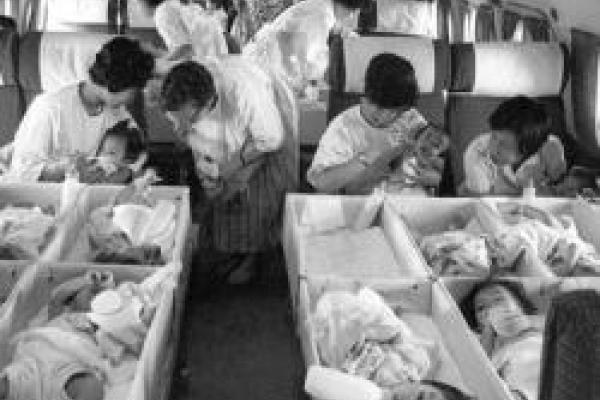
The Institute for Korean Studies presents:
Arissa Oh
Associate Professor
Department of History
Boston College
"The Korean Origins of International Adoption"
Flyer: Arissa Oh Flyer.pdf
Abstract: During the late twentieth century, international adoption became an increasingly common way for Americans to construct their families. Americans have adopted hundreds of thousands of children from abroad and the multiracial, global families created through these adoptions have played important symbolic roles in public discussions about the meanings of race, family, and nation.
In this talk, Arissa Oh will discuss how and why international adoption began in South Korea after the Korean War as well as the importance of the US-Korea relationship to its creation and development. She will also explore what the practice of international adoption can tell us about the changing racial landscape of the Cold War United States in the second half of the twentieth century, and the changing position of Asian-Americans in that landscape.
While international adoption has changed and evolved since it began over six decades ago, and is now in a deep decline, it has transformed immigration law, child welfare policy, and ideas about race and kinship in both Korea and the United States.
Bio: Arissa H. Oh received her Ph.D from the University of Chicago in 2008. She is Associate Professor in the History Department at Boston College, where she teaches and researches migration, particularly in relation to race, gender, and kinship. Her book, To Save the Children of Korea: The Cold War Origins of International Adoption (Stanford University Press, 2015), examines the Korean roots of international adoption and the role the practice has played in both Korean and American history.
Free and open to the public
This event is supported in part by OSU's Asian American Studies Program and by a U.S. Department of Education Title VI grant to The Ohio State University East Asian Studies Center.
